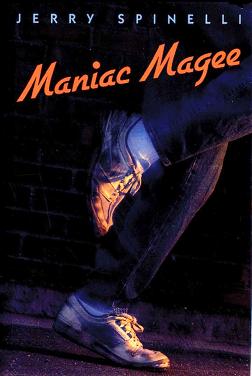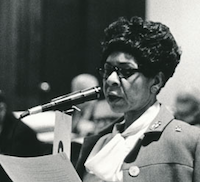Related Research Articles

The John Newbery Medal, frequently shortened to the Newbery, is a literary award given by the Association for Library Service to Children (ALSC), a division of the American Library Association (ALA), to the author of "the most distinguished contributions to American literature for children". The Newbery and the Caldecott Medal are considered the two most prestigious awards for children's literature in the United States. Books selected are widely carried by bookstores and libraries, the authors are interviewed on television, and master's theses and doctoral dissertations are written on them. Named for John Newbery, an 18th-century English publisher of juvenile books, the winner of the Newbery is selected at the ALA's Midwinter Conference by a fifteen-person committee. The Newbery was proposed by Frederic G. Melcher in 1921, making it the first children's book award in the world. The physical bronze medal was designed by Rene Paul Chambellan and is given to the winning author at the next ALA annual conference. Since its founding there have been several changes to the composition of the selection committee, while the physical medal remains the same.

Katherine Womeldorf Paterson is an American writer best known for children's novels, including Bridge to Terabithia. For four different books published 1975–1980, she won two Newbery Medals and two National Book Awards. She is one of four people to win the two major international awards; for "lasting contribution to children's literature" she won the biennial Hans Christian Andersen Award for Writing in 1998 and for her career contribution to "children's and young adult literature in the broadest sense" she won the Astrid Lindgren Memorial Award from the Swedish Arts Council in 2006, the biggest monetary prize in children's literature. Also for her body of work she was awarded the NSK Neustadt Prize for Children's Literature in 2007 and the Laura Ingalls Wilder Medal from the American Library Association in 2013. She was the second US National Ambassador for Young People's Literature, serving 2010 and 2011.
The American Library Association (ALA) is a nonprofit organization based in the United States that promotes libraries and library education internationally. It is the oldest and largest library association in the world.

Maniac Magee is a novel written by American author Jerry Spinelli and published in 1990. Exploring themes of racism and inequality, it follows the story of an orphan boy looking for a home in the fictional town of Two Mills. Two Mills is harshly segregated between the East and West, blacks and whites. He becomes a local legend for feats of athleticism and helpfulness, and his ignorance of sharp racial boundaries in the town. It is popular in middle school curricula, and has been used in social studies on the premises of reaction to racial identity and reading. A TV movie was released on February 23, 2003.
Carter Curtis Revard was an American poet, scholar, and writer. He was of European American and Osage descent, and grew up on the tribal reservation in Oklahoma. He had his early education in a one-room schoolhouse, before winning a Quiz Bowl scholarship for college, subsequently attending University of Tulsa for his BA.

Virginia Esther Hamilton was an American children's books author. She wrote 41 books, including M. C. Higgins, the Great (1974), for which she won the U.S. National Book Award for Young People's Literature and the Newbery Medal in 1975. Her works were celebrated for exploring the African-American experience, what she called "Liberation Literature."

John Joseph Mathews became one of the Osage Nation's most important spokespeople and writers of the mid-20th century, and served on the Osage Tribal Council from 1934 to 1942. Mathews was born into an influential Osage family, the son of William Shirley Mathews an Osage Nation tribal councilor. He studied at the University of Oklahoma, Oxford University, and the University of Geneva and served as a pilot during World War I.

Virginia Haviland was an American librarian and writer who became an international authority in children's literature. She chaired the prestigious Newbery-Caldecott Award Committee, traveled and wrote extensively. Haviland is also well known for her Favorite Fairy Tales series, featuring stories from sixteen countries.
Carmen Agra Deedy is an author of children’s literature, storyteller and radio contributor.

The National Commission on Libraries and Information Science (NCLIS) was an agency in the United States government between 1970 and 2008. The activities of the Commission were consolidated into the Institute of Museum and Library Services. Records of NCLIS are held at the U.S. National Archives and Records Administration and the University of Michigan Library, Special Collections as part of the Power Collection for the Study of Scholarly Communication and Information Transfer.
The American Indian Library Association (AILA) is an affiliate of the American Library Association (ALA), and is a membership action group that focuses on the library-related needs of Native Americans and Alaska Natives. The organization's members consist of both individuals and institutions that are interested in improving library services to Native American people in any type of library in the United States.

Little House on the Prairie is an autobiographical children's novel by Laura Ingalls Wilder, published in 1935. It was the third novel published in the Little House series, continuing the story of the first, Little House in the Big Woods (1932), but not related to the second. Thus, it is sometimes called the second one in the series, or the second volume of "the Laura Years".

Loriene Roy is an American scholar of Indigenous librarianship, professor and librarian from Texas. She was the first Native American president of the American Library Association when she was inaugurated in 2007.

Carla Diane Hayden is an American librarian who is serving as the 14th librarian of Congress. Since the creation of the office of the librarian of Congress in 1802, Hayden is both the first African American and the first woman to hold this post. Appointed in 2016, she is the first professional librarian to hold the post since 1974.

William Sherley "Old Bill" Williams was a noted mountain man and frontiersman, known as Lone Elk to the Native Americans. Fluent in several languages, Williams served as an interpreter for the government and led several expeditions to the West. He married into the Osage Nation, having two children who both married John Allen Mathews.
The Jean E. Coleman Library Outreach Lecture presented at the annual conference of the American Library Association (ALA) is tribute to the work of Jean E. Coleman to ensure that all citizens, particularly Native Americans and adult learners, have access to quality library services. Dr. Coleman directed the ALA, Office for Literacy and Outreach Services (OLOS) which served the Association by identifying and promoting library services that support equitable access to the knowledge and information stored in our libraries. OLOS focused attention on services that are inclusive of traditionally underserved populations, including new and non-readers, people geographically isolated, people with disabilities, rural and urban poor people, and people generally discriminated against based on race, ethnicity, sexual orientation, gender identification, age, language and social class. The Jean E. Coleman lecture is now sponsored by the Office for Diversity, Literacy and Outreach Services (ODLOS).
The Southeastern Library Association (SELA) is an organization that collaborates with different library associations within the Southeastern United States, including Alabama, Arkansas, Florida, Georgia, Kentucky, Louisiana, Mississippi, North Carolina, South Carolina, Tennessee, Virginia, and West Virginia.

Effie Lee Morris was an African American children's librarian, educator, and activist, best known for her pioneering public library services for minorities and the visually-impaired. Morris developed Cleveland Public Library's first Negro History Week and was New York Public Library's first children's specialist for visually-impaired patrons. She was the first coordinator of children's services at San Francisco Public Library, where she was also the first African American to hold an administrative position.

John Allen Mathews was an American frontiersman and slave owner who settled among the Osage Nation and later advocated and died for the Confederate States of America.
John Hopper Mathews was an American and Osage Nation actor, professor, and research scientist.
References
- ↑ McCook, Kathleen de la Peña (1998). Women of Color in Librarianship: An Oral History. p. 21.
- ↑ Snyder 2017, p. 64.
- ↑ Snyder 2017, p. 75-76.
- ↑ Snyder 2017, p. 78.
- ↑ "Virginia H. Mathews Papers: A Finding Aid to the Collection in the Library of Congress" (PDF). Library of Congress. 2018. Retrieved 24 April 2023.
- ↑ Snyder 2017, p. 81.
- ↑ Distinguished Alumni: 2004 - Virginia Hopper Mathews - 1942 "Virginia has been on an ongoing crusade for literacy since her graduation from the Beard School. She has served as a project director including the US Department of Education, the Endowments for both Arts and Humanities as well as the Department for Health and Human Services, the Department of the Interior, the Office of Economic Opportunity and the Library of Congress. Never forgetting her American Indian roots, Virginia also took part in the First White House Conference on Libraries and Information Services in 1979, fighting for funds for libraries on Indian reservations. Her passion for children's education led her to serve as a consultant in the early stages of Sesame Street's development and to write the Sesame Street Parent Guide."
- 1 2 Council of the American Library Association (2011), Memorial Resolution Honoring Virginia Mathews (PDF), Proceedings of the American Library Association, New Orleans, Louisiana
{{citation}}: CS1 maint: location missing publisher (link) - 1 2 Duty, Shannon Shaw (11 June 2009). "Mathew's manuscripts on literacy sent to the U.S. Library of Congress". Osage News.
- ↑ Beverly Goldberg (2011). "Children's Services Champion Virginia Mathews Dies". American Libraries (May/June).
- ↑ White House Conference on Library and Information Services. 1991. Washington D.C. Conference.
- ↑ Mathews, Virginia H., Center for the Book., and White House Conference on Library and Information Services Task Force. Libraries, Citizens & Advocacy: The Lasting Effects of Two White House Conferences on Library and Information Services /. White House Conference on Library and Information Taskforce, 2004.
- 1 2 Snyder 2017, p. 82.
- ↑ "Back to Books?". Time. Vol. 75, no. 7. February 15, 1960. p. 69.
- ↑ Nixon, Guy (2011). Finding Your Native American Ancestors. pp. 182–184.
- ↑ Crosby, John (February 1, 1960). "Television and Radio". The Sarasota Herald-Tribune.
- ↑ "WNBA Book Award".
- ↑ American Indian Library Association names scholarship in honor of Virginia Mathews
- ↑ Virginia H. Mathews papers, 1897-1991Library of Congress.